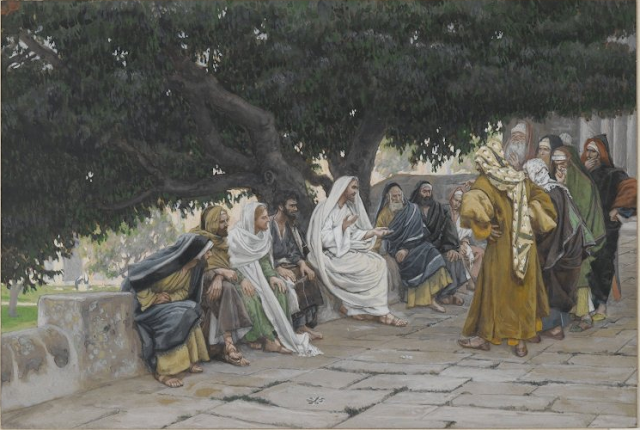TO CHEW ON: "He brings the princes to nothing;
He makes the judges of the earth useless." Isaiah 40:23
A few weeks ago Vancouver was in the throes of an "Occupy" demonstration. Every news report and talk show was buzzing with what to do about the tent city set up on the grass near the public library. These malcontents were determined to change the order of society. One proclaimed, stoutly, "I am not leaving until the rich are poor and the poor are rich."
They will probably not succeed, at least not to that extent. Though such demonstrations may have short-term effects, their long-term impact on history will probably be minimal.
Contrast that with God, pictured here as looking down on our earth globe and seeing its inhabitants as grasshoppers. He has the ultimate say-so over earth's rulers. Like short-lived plants, no sooner are they established than they feel His frosty breath and wither away.
We have the dissection of one such God-intervention in 2 Chronicles 20. There King Jehoshaphat, threatened by the Ammonites and Moabites, took his problem to God: "We have no power against this great multitude...nor do we know what to do, but our eyes are upon You" - 2 Chronicles 20:12.
God's solution came via the words of the prophet Jahaziel, who said, "You will not need to fight in this battle. Position yourselves, stand still and see the salvation of the Lord" - 2 Chronicles 20:17.
The next day the army entered battle in a very unconventional way, behind the singers and worshipers. Even as the praise began "...the Lord set ambushes against the people of Ammon, Moab and Mount Seir ... and they were defeated" - 2 Chronicles 20:22.
As people of faith, I think we put too little stock in God's ability to manipulate the course of history. We need to spend less time criticizing and scheming how to make political changes, and more time acknowledging "We have no power, nor do we know what to do, but our eyes are on You," and then praise Him for the victory He is accomplishing.
PRAYER: Dear God, thank You for Your sovereignty over nations and their rulers. Help me not to be dismayed by what I see, but to keep praying for the leaders of my country and the countries of the world. Amen.
MORE: Warfare with singing
One way to wage spiritual battle in whatever sphere, is through singing, as the people did under Jehoshaphat. John Piper, in a sermon called "Ambushing Satan with Song" says:
"Spiritual worship and spiritual warfare should be carried out with singing....the enemies of God are thrown into confusion by the songs of God's people. Or to put it another way, God has appointed the use of spiritual songs as an effective weapon against his archenemy Satan." By John Piper. © Desiring God. Website: desiringGod.org
Read all of "Ambushing Satan with Song"















